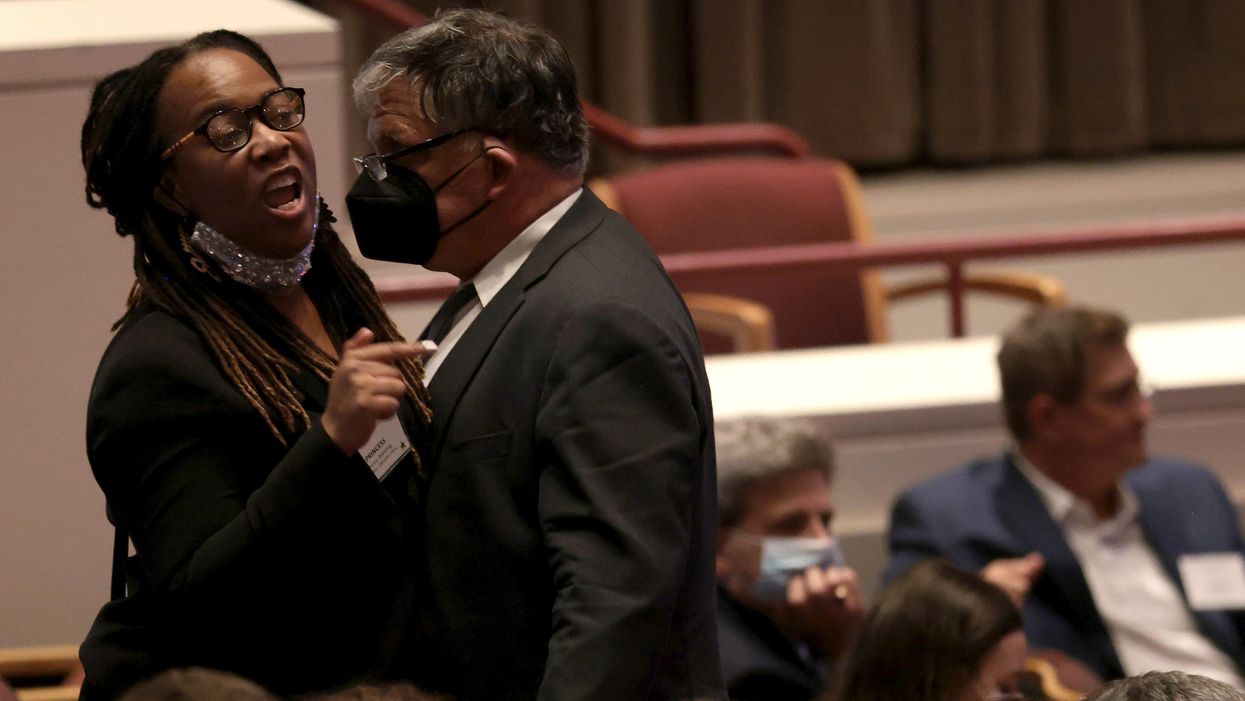Alper is the founder of Common Sense Strategies Group and a political strategist focusing on democracy and government reform.
The eyes of the political world were locked in when the candidates for governor of Virginia stepped on the stage for a debate on Sept. 28. With the race between Republican Glenn Youngkin and Democrat Terry McAuliffe tightening, the table was set for a dramatic, head-to-head affair. However, by debate's end, the showstopper unexpectedly was another candidate for governor: Princess Blanding.
Like her Democrat and Republican opponents, Blanding has secured a place on the November ballot. Running under the banner of the Liberation Party that she created, she will make history as the first Black woman to appear on the state's gubernatorial ballot. And yet, despite sharing a place on the ballot with Youngkin and McAuliffe, there was no such place for her on the stage. Rather than meekly accepting the refusal of debate organizers to leave her out of the — she was instead offered a placatory seat in the audience with the hopes she would sit quietly and watch her opponents participate — she protested her exclusion, claiming she had earned the right to be on the stage, and that explicitly leaving her on the sidelines was a form of censorship and voter suppression. Moderator Chuck Todd responded by calling security, who promptly removed Blanding from the venue.
Blanding is right to protest her censorship. Instead of being chucked out of the audience, she should have been on the stage in the first place.
Despite voter discrimination and suppression becoming a national issue that has been used by the two major parties to assail each other and rile up their political bases. In reality, the duopolistic system they have created and fought to maintain is designed to disenfranchise the largest coalition of voters in the country: independent and third-party voters. According to the most recent Gallup polling, 40 percent of registered voters self-identify as unaffiliated from either major party. By creating an election system designed to discourage and disadvantage independent candidates, the parties have left millions of politically homeless voters without a representative voice.
The parties have gotten creative with their tactics to keep independent candidates out of the process. Ballot access requirements, such as pay-to-play fees or petition signatures, are often dramatically higher for independent and third-party candidates and frequently result in candidates getting locked out of the general election.
Even when independent candidates manage to get on the ballot, they are forced to play catch-up in what is already an uphill battle. In states that hold partisan primaries, winning candidates transition into the general election with formidable resources and press exposure already banked, while independents must generate that momentum from scratch. Excluding independents from polls and debates is a tactic designed to keep such candidates on the sidelines, out of sight of the voters.
Even public election financing, long championed by reformers as a critical effort to reduce the influence of big money in our elections, discriminates against independent and third-party candidates. In New York City for example, candidates who participate in closed primary elections receive public funds for the primary and general elections, whereas independents who qualify are only eligible to receive general election grants, ensuring they will face a 2:1 spending deficit.
Instituting nonpartisan primary elections, standardizing ballot access and public financing rules, and mandating the inclusion of all general election candidates in public debates are all simple steps that can be taken to end the discrimination against candidates who have the audacity to run outside of the two parties, leveling the playing field for all candidates regardless of party affiliation.
These critical reforms must be made to achieve a democracy that is more healthy, equitable and representative of the American people.



















Trump & Hegseth gave Mark Kelly a huge 2028 gift